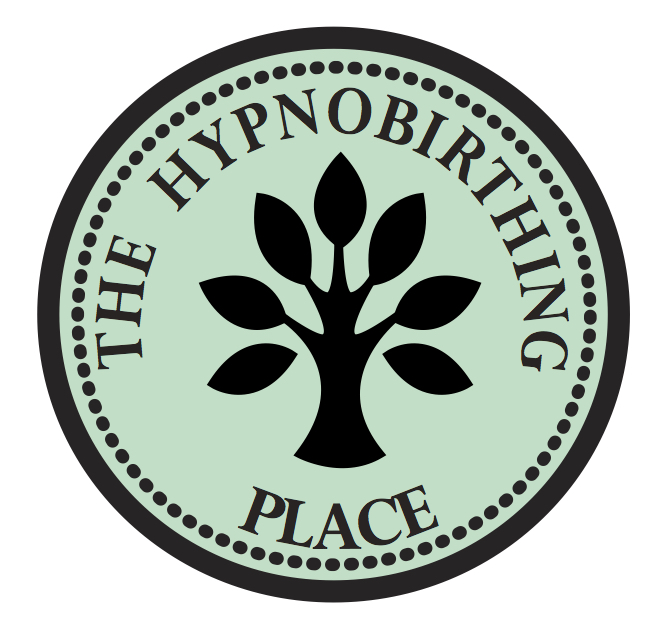Pregnancy insomnia, and how to sleep better
It's not unusual to be hit by pregnancy insomnia, especially in the third trimester, though it could be at any time.
Why?! It could be the physical discomforts of pregnancy, like heartburn, back pain or restless leg syndrome. It could be the 'baby is coming soon' thoughts and endless to-do lists. Or needing yet another wee.
But we know that a good night’s sleep is priceless for our physical and mental wellbeing. So here I want to talk about two types of approaches that can help you beat the pregnancy insomnia and sleep better.
The first involves looking at your evening routine, with a bit of scheduling and time management, including tips for conquering the no-mans land of the sofa.
The second contains practical tips for bedtime and sleep itself, including how to unwind, create the optimal bedroom environment, and stay comfortable in bed.
I hope that combined, these approaches help you to feel much more rested.
Photo by Kinga Cichewicz on Unsplash
A few quick Daytime tips first
Try and avoid caffeine after 1pm
No more herbal tea past 9pm so you don’t spend half the night going to the loo
Mild exercise of at least 30 mins a day helps you feel more tired at night
Yoga is a lovely way to stretch, open and help your body feel more comfortable, which will in turn help you sleep better
How your Evening can help you sleep better
Photo by Jagyasini Malakar on Unsplash
Stay regular
In the excellent book; Why We Sleep:, Matthew Walker tells us that going to bed and waking up at the same time every day will help us sleep better.
Remember, this is something to aim for, rather than something you’ll manage 100% of the time.
To get to sleep at the same time each night, it’s important to establish an evening routine.
I’m going to help you figure yours out, but before we do, please bear in mind three things.
If you don’t like the idea of a routine, think of this as your gentle evening guide.
You want to aim for 8 hours sleep a night
According to Hofstadter's Law: things always take longer than you expect, even when you take Hofstadter's Law into account! So give yourself plenty of time for things you want to do in the evening and for getting ready for bed and remember that LESS IS MORE!
So, now we’re ready to figure out your nightly routine
First, work out when you want to be asleep by.
If you want to wake at 7am each day, that means being asleep by 11pm latest.
Once you’ve decided when you want be asleep, work back from there to schedule in the stuff you want to do beforehand, like eating, relaxing etc.
You’ve then got a loose timetable to follow each evening (unless you’re out).
When mapping out your evening routine, it’s worth taking into account the following factors:
The earlier you eat, the less chance of acid reflux in bed.
The earlier you finish off any last bits of work, the less your sleep will be disrupted by the stimulating effects of looking at your laptop screen.
Include an hour before sleep which is dedicated to relaxing and winding down - and a bit of faffing about! It sounds like a lot, but it isn’t actually, once you factor in a bath or a book, getting ready for bed and your Hypnobirthing practice if you’re doing that and it will help you wind down for a more restful night’s sleep.
So as an example, an evening guide, which factors in your 20 mins of lovely hypnobirthing relaxations, might be:
Just move the times forward or backwards depending on whether you’re a night owl or a morning person.
Now lets look in more detail at the things you can do directly before going to sleep, because this is the time that will help you most.
Photo from Kiss the Moon
Enjoy a warm bath or shower sometimes
This ups your chances of a good night’s sleep, especially if you give yourself time after to cool off, as it's the drop in your body temperature that's key.
Joyce Walsleben, PhD, associate professor at New York University School of Medicine says "If you raise your temperature a degree or two with a bath, the steeper drop at bedtime is more likely to put you in a deep sleep,"
It’s lovely to listen to your Hypnobirthing relaxations in the bath too.
Conquer the no-mans land of the sofa
That block of time between leaving the sofa and being in bed is a no-mans land and has fooled many of us into going to bed later than we wanted.
Don’t let Netflix seduce you into another episode, taking you up to the time you wanted to be asleep.
Like me, I suspect you’ve never got into bed and thought “I wish I’d watched another episode” but have often wondered why you didn’t get into bed half an hour earlier!
Also, don’t enter a time vortex by scrolling on your phone when the TV programme finishes. It becomes habitual to reach for the phone as the credits role and I am the worst offender at this. Gazing at your phone feels like a relaxing thing to do, but the blue screen is waking your brain up.
In fact, given the irresistible lure of the phone if it’s next to you on the sofa (especially if you’re tired), you could leave it in another room altogether. I’m making myself do this because I know my willpower alone is not enough!
Create the optimal bedroom environment for sleep
Life is busy, so at bedtime make sure that you send a signal to your brain that it's time to slow down and sleep.
Here are some practical things you can do to set the mood in your bedroom.
Ban electronics from your room. Having these items in our bedrooms tends to wreak havoc on sleep Put the charger in another room if that helps and use an alarm clock to wake if needed.
Use a candle or room/pillow spray or use a relaxing balm on your pulse points to trigger yourself into 'sleep mode'. Our sense of smell has the power to transform a room and alter the way everyone in it feels.
Keep your bedroom dark. Our sleep cycles are run by our circadian rhythms, which are set by a tiny receptor in the retina that is highly sensitive to light and darkness. Melatonin is the hormone we produce in darkness and this is what sends us off into a lovely sleep. Bring on the blackout blinds!
Keep the temperature cool. About 18c (65f) is ideal for cooling your body towards sleep.
Wear nice PJs. It makes a difference I promise!
Play the same music in the background each evening as you do your hypnobirthing relaxation practice
Which bring us onto the next point…
Breathe deeply and Relax just before sleep
Deep breathing is one of the most effective relaxation techniques for sleep for several reasons:
It relaxes your muscles, helps slow your heart rate and your rate of breathing. Mentally it gets you into a good state, ready for sleep by grounding you in the moment instead of thinking about past or future problems. By focusing your attention on your breathing you will reduce the quantity of thoughts on your mind and centre yourself.
Breathing properly takes practice. Enjoy doing your hypnobirthing Up and Down Breathing techniques each night, followed by one of the extra relaxations, and you will soon find it easy to reach a naturally deep, abominable breathing rhythm.
Relieving pregnancy insomnia is one of the key benefits of hypnobirthing. Practicing each evening WILL help you sleep better.
Please note, the hypnobirthing relaxations are designed to help you drift off to sleep, but if you find you are falling asleep instantly during them, maybe start them earlier, so you can get past the first sentence before nodding off!
Tips for staying comfortable during sleep
Sleep position myth busting…
Whilst it’s true that it’s not a good idea to sleep on your back in pregnancy, it’s a myth that it’s not a good idea to sleep on your right side, for fear this will stop the flow of blood to your baby. This isn’t the case, so feel free to sleep on either side and to switch around whenever.
Use a pregnancy pillow
A good pregnancy pillow takes the pressure off your hips or lower back, meaning it can help alleviate back pain. Not only will it help you find a comfortable position, you can use it to help with breastfeeding too - so you really do get your money's worth.
It’s important to try out a few to find one that feels right, and remember there’s no need to spend lots of money on it.
In fact, a good solid normal bed pillow tucked between your legs and another under your abdomen or behind your lower back will be supportive and may be sufficient.
Sleep happy
Going to bed feeling positive has been shown to result in a more restful night's sleep.
Avoid any violent or scary shows just before going to bed. Even if you do your hypnobirthing practice straight after, your mind will still want to churn over those unsettling images, so if you do want to watch them, make sure you do so earlier in the evening.
Practice your hypnobirthing relaxations each evening, ideally with your partner reading them to you if you can, or listening to your recordings as you drift off to sleep. These will help you feel more positive as well as calm.
If you do wake, try listening to your relaxation recordings again to send you back off to sleep.
Many mums I've taught have told me this works a treat.






